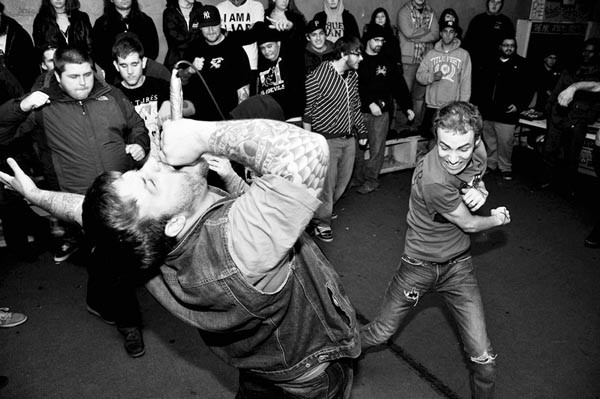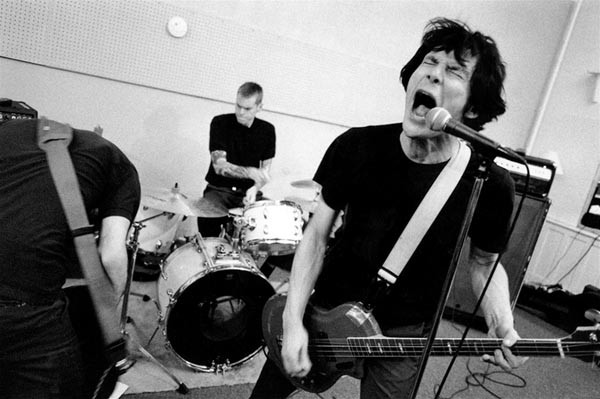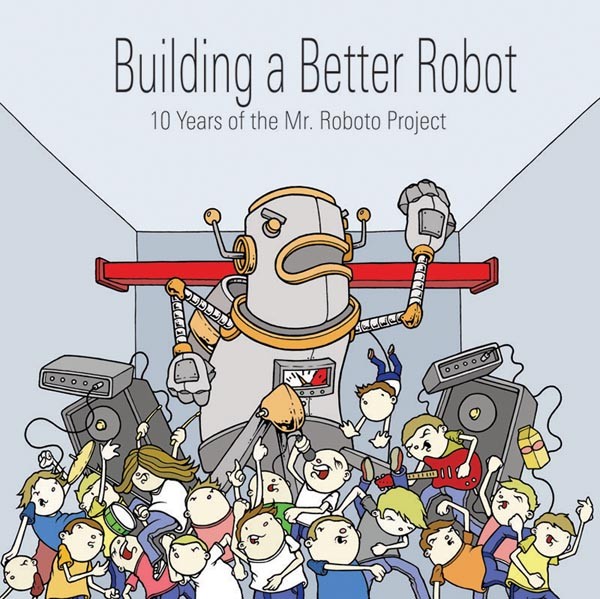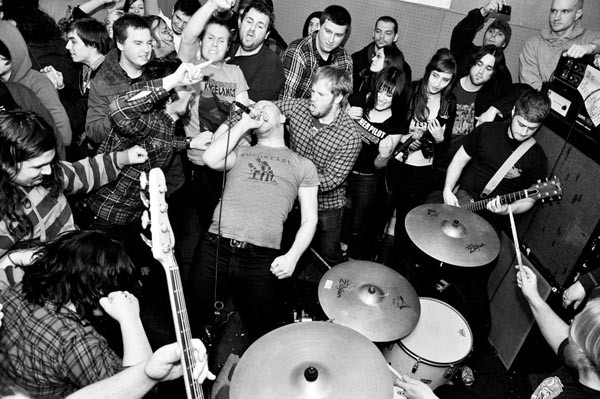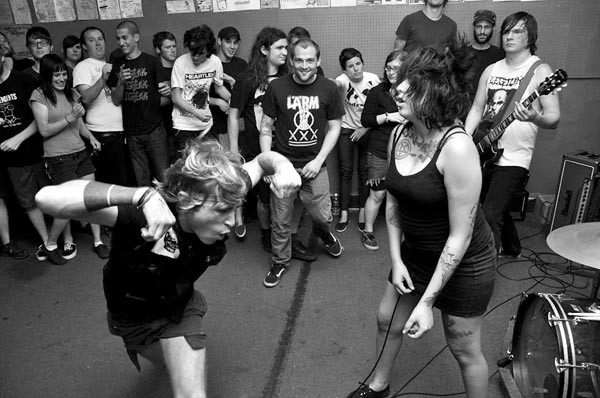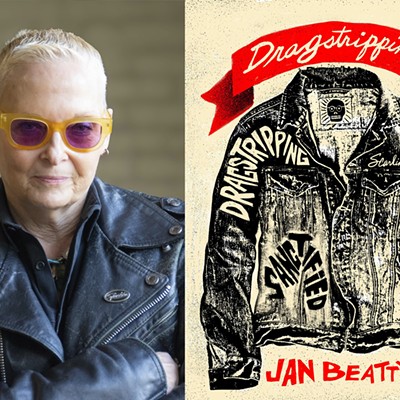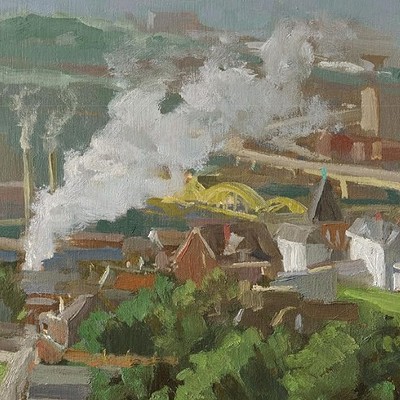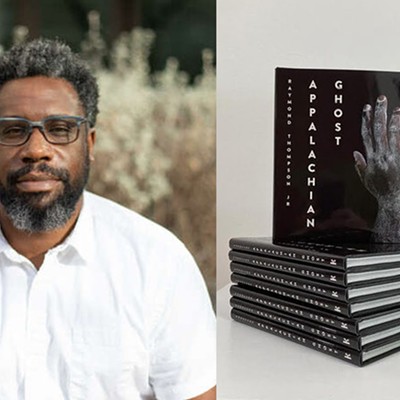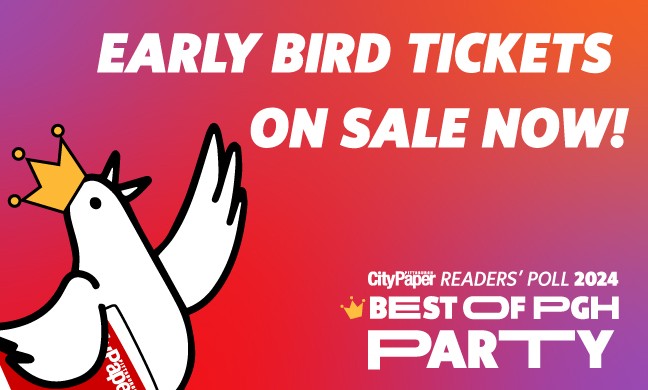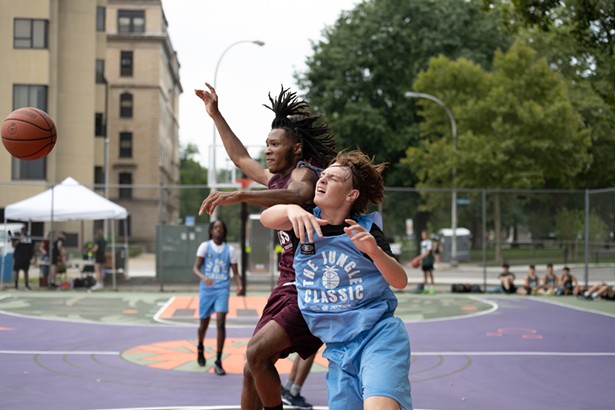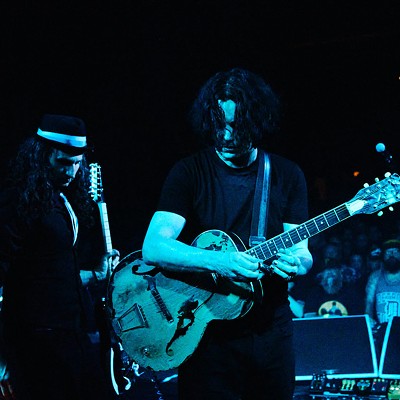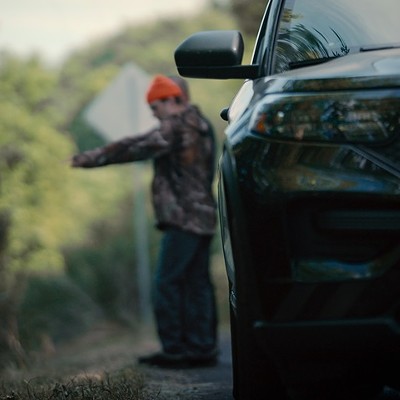Someone once said of The Velvet Underground's first album that only 1,000 people bought it, but every one of them started a band. After reading Building a Better Robot, you might feel similarly about the first incarnation of the Mr. Roboto Project.
Active between 1999 and 2010, the cooperatively run, volunteer-operated music venue occupied a Wilkinsburg storefront, where it mostly featured shows by local and touring underground punk bands. It hosted audiences of only about 100, and the place ran on a shoestring: Because the shows were all-ages, there were no alcohol sales. Yet Roboto was culturally significant out of all proportion to its size and resources.
The venue began after musicians Mike Q. Roth and Eric Meisberger visited a similar co-op while visiting Baltimore. Roboto brought Pittsburgh punk out of local basements and sometimes-inhospitable bars. It became a key touring stop on the East Coast punk circuit, luring bands that previously skipped Pittsburgh, and hosting names like Bright Eyes and Ted Leo. It nurtured local talents like Anti-Flag, Modey Lemon, Caustic Christ and Kim Phuc. And the venue's success arguably inspired Pittsbugh's new wave of small, independent, often non-bar music venues.
But Roboto was "more than just a venue. It's a community of people who give a fuck," Max Gregg, of the band Allies, says in Better Robot. Thanks to its radical, community-building ethos, Roboto changed Pittsburgh in nonmusical ways, too. In an adjacent space staffed by some of the same folks, for instance, were born the Free Ride bike co-op and the Big Idea bookstore, both still thriving in other locations. Roboto also birthed a lively, often contentious online message board, now independent of the venue and called Never Tell Me the Odds.
Building a Better Robot is a self-published, large-format paperback, created by Roboto stalwarts Roth, Andy Mulkerin and Missy Wright, with funding from the Sprout Fund. Mulkerin, who is City Paper's music editor, wrote the even-handed prose documenting Roboto's history. Five Roboto regulars contribute short essays, and there's a brief roundtable by four female Roboto members about gender issues in the male-dominated scene.
Meanwhile, some 130 of the book's 192 pages are devoted to photos, mostly of concerts. These churning arrays of circle-pitters, fist-pumpers and flying-leapers were captured by photographers including Wright, Shawn Brackbill and Tanner Douglass. Accompanying the photos are oral-history testimonies recalling everything from great and terrible shows to Roboto's legendary iced-tea-chugging contests. Also included: a DVD featuring songs (and some video) by 37 local bands that played Roboto.
What the photos might communicate best is the egalitarian nature of a venue that didn't even have a stage: Often, it's hard to tell the band from the audience, with both blending in the guitars-and-drums ruckus. As Ian Ryan puts it, "I feel like often the crowd was there to entertain the bands just as much as the bands were there to entertain the crowd."
Roboto closed in 2010, by which time it was competing with several more centrally located venues booking similar music. Last fall, a new incarnation opened on Penn Avenue, in Bloomfield. As Doug Mosurock writes in the book's forward: "The Mr. Roboto Project was then, and is now, a symbol of what can be done when you have a small group of people united behind a common cause."

